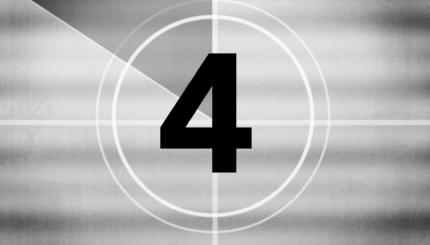“Each generation, people must see themselves as if they themselves went forth from Egypt.”
That quote is the essence of why we celebrate Passover, read the Haggadah, and hold a Seder. When we think about that sentence, we naturally focus on how Passover should inspire us to work for freedom and justice. But often, we overlook two crucial words in that sentence: “as if.” And those two words may, in fact, be the most important ones.

The words “as if” inspired psychologist Richard Wiseman to write a new book called The As If Principle, based on William James’ idea that “if you want a quality, act as if you already have it.” Wiseman highlights some fascinating research that shows that change doesn’t always come from the inside out — sometimes, change comes from the outside in.
In other words, if we act “as if” we were trying to improve who we are and how we behave, we actually do improve who we are and how we behave.
One striking example he brings up was a method to get heavy smokers to give up cigarettes. There have been all sorts of attempts to get people to give up smoking over the years, and most have used the scare route, such as public service announcements featuring people who have lost their voice box or ever-increasingly-ominous warnings on cigarette packs. But John Mann, a researcher at Harvard, decided to try something different: role-playing.
Twenty-six very heavy smokers were randomly assigned to two different groups. One group was asked to behave “as if” they had been diagnosed with lung cancer, and even went into a room that looked like a doctor’s office, complete with an actor in a white coat, X-rays and medical charts. This group was asked to think about how they would behave now that they “had” cancer. In contrast, the control group simply were simply presented information about how awful it would be to have lung cancer, but didn’t do any role-playing.
What happened to the two groups? Before the study, all the participants were smoking about 25 cigarettes per day. At the end, the control group had cut back by five cigarettes. But the role-playing group had cut back by 10. Even years later, the group that had to act “as if” they needed to change their lives actually did. (Wiseman, 123)
Role-playing, acting “as if” we were someone else, changes our outlook and our behavior, and so that is why the Seder commands us to act “as if we ourselves went forth from Egypt” — because Passover, at its heart, is truly an act of role-playing. We have props (the seder plate, Elijah’s cup), stage directions (recline, drink wine) and a script (the Haggadah). And they are all designed to help us act as if we ourselves went forth from Egypt.
So what outlook or behavior is Passover trying to get us to change? Rabbi Lawrence Hoffman, who calls the Haggadah “the script for a sacred drama” in order to help us to role-play more effectively, argues that it’s to help us connect to our history, our community, and our obligations to others. As he says, when we host our Seder and act “as if we ourselves went forth from Egypt,”
[we] do not just “play” the roles, [we] are the roles, and [we] take the roles so seriously they [we] internalize them as [our] identities. When the actress playing Lady Macbeth leaves the theater, she is not expected to murder someone on the way home; when Jews put down their Haggadah, they are expected to have a heightened sense of Jewish identity and to be more attuned to their Jewish responsibilities. People, that is, who leave the Seder and ignore the plight of the homeless have missed the point. (Hoffman, My People’s Haggadah Vol. 1, 5-6)
The “as if” principle teaches us that “once you behave as if you were a type of person, you become that person.” So on this Passover, when we act “as if” we ourselves went out from Egypt, we are also leading ourselves to act like people who care deeply about the oppressed, who fight for justice, and who extend a hand to those less fortunate.
And when we act that way, we soon realize that we aren’t simply role-playing; we truly are changing ourselves and our world for the better. Indeed, those two little words that we too often ignore — “as if” — are truly what allows us to transform our hopes and dreams into our reality.
Haggadah
Pronounced: huh-GAH-duh or hah-gah-DAH, Origin: Hebrew, literally “telling” or “recounting.” A Haggadah is a book that is used to tell the story of the Exodus at the Passover seder. There are many versions available ranging from very traditional to nontraditional, and you can also make your own.
seder
Pronounced: SAY-der, Origin: Hebrew, literally “order”; usually used to describe the ceremonial meal and telling of the Passover story on the first two nights of Passover. (In Israel, Jews have a seder only on the first night of Passover.)


